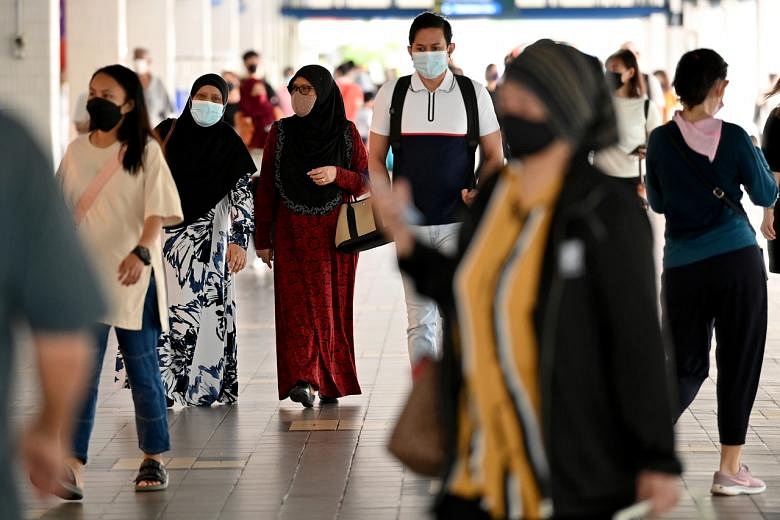SINGAPORE - The Islamic Religious Council of Singapore (Muis) has released official guidance stating that while the tudung is a religious requirement for Muslim women, they may make adjustments to the attire where needed.
This can be to comply with certain workplace requirements, such as dress codes, said Muis on Tuesday (Oct 26).
Its fatwa committee, a group of senior Islamic scholars that decides on religious rulings here, did not specify the length or design of the headgear that Muslim nurses can wear.
However, nurses can comply with hospitals' "bare below the elbows" (BBE) policy, said the religious guidance issued by Muis.
Like doctors, nurses must wear short-sleeved attire to keep their forearms bare during patient care, because of the risk of infection and the need to ensure the safety of both healthcare staff and patients.
Typically, Muslim women here who don the tudung cover their arms from the wrist up, but protecting people from danger and harm is emphasised by Muslim law, said Muis.
The guidance was issued ahead of Muslim nurses being allowed to don the headgear from Nov 1, should they wish.
Prime Minister Lee Hsien Loong had announced this policy change in his National Day Rally speech on Aug 29, which came on the back of years of consultation and consensus building among communities here. This will apply to more than 7,000 public healthcare staff.
The public service's secular policy on uniforms stipulates that it cannot be tilted towards any particular religious beliefs.
Minister-in-charge of Muslim Affairs Masagos Zulkifli said in Parliament in March that the uniform of public servants is a "visible sign that service is rendered equally regardless of race or religion".
On the uniform policy for other uniformed services, such as the police and the armed forces, there will be no change. Mr Lee said this is because these groups are impartial and secular arms of the state who are armed and enforce laws here.
Muis on Tuesday said that following Mr Lee's announcement, it received requests for guidance on the specifics of the religious obligation to don the tudung.
The council said it had consulted and engaged various groups in the healthcare sector, public officers, mosque leaders and Islamic religious teachers in October before developing the fatwa.
It said the principles-based guidance is "designed to empower Muslims instead of simply issuing a blanket general prescription".
"It aims to guide Muslim women to carefully consider their unique situation and empower them with the principles and values of Islam that will enable them to make balanced and right choices for themselves," Muis said.
Noting that women play an important role in society and in the workforce, the council said that the guidance "situates the issue of the wearing of tudung in the workplace in the larger context of observing the teachings of Islam within a unique socio-religious environment, and subject to prevailing work and uniform policies".
Muis also pointed out the importance of ensuring that Muslim women who can wear the tudung if the uniform policies permit should do so of their own volition and without any form of coercion.
The guidance also emphasises the importance of social cohesion, and the council said that the fatwa calls for strengthening of relations between the different communities. This so that religious appearances and symbols do not impede efforts to strengthen social harmony in Singapore.
The council said that the healthcare staff it engaged with understood the need to observe the "bare below the elbows" policy.
"Some also expressed their gratefulness that the fatwa advised against coercing healthcare staff to now don the tudung, as some choose to still not wear it due to various reasons," said Muis.
"Others expressed their hopes that this fatwa will encourage more Muslim women to pursue and join the healthcare industry, including madrasah (Islamic school) graduates."


